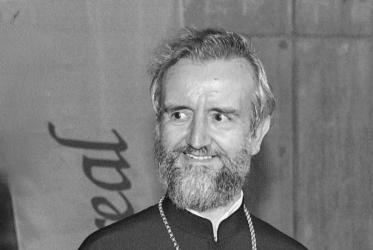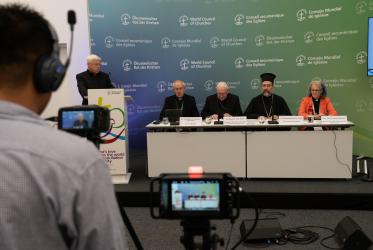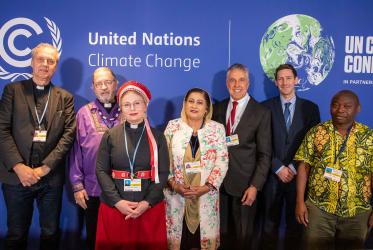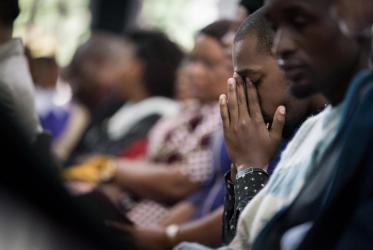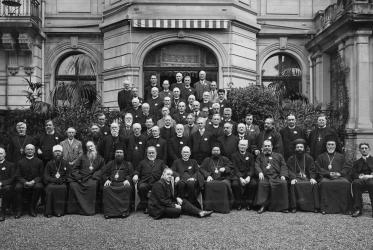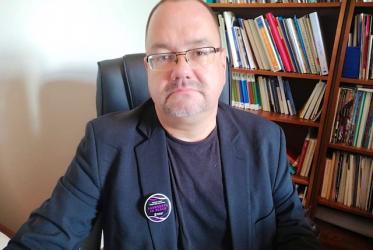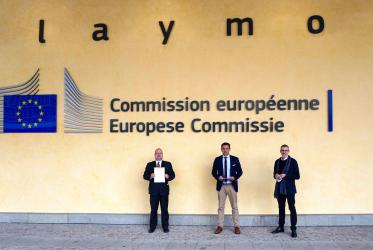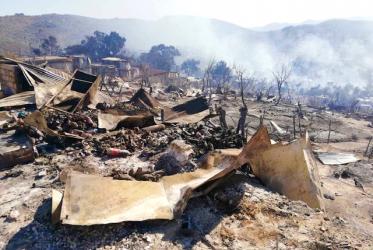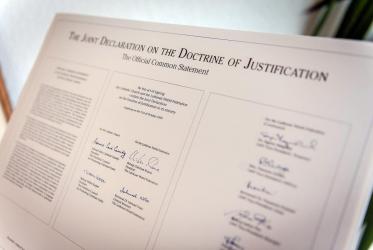Displaying 1 - 20 of 41
WCC mourns loss of Elder Metropolitan John Zizioulas of Pergamon
03 February 2023
World mourns loss of Archbishop Desmond Tutu
30 December 2021
Webinar: “Anglican-Orthodox Dialogue: History, Results, Reception”
09 March 2021
Online-By registration only
Ecumenical statement on migration received by European Commission
25 September 2020
